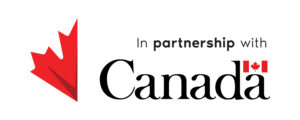Duration: 2019-2024
Location: Uganda, South Sudan, and Syria
Budget: $17.1 million (Global Affairs Canada: $15,987,691; AKFC: $756,000; World University Service of Canada: $433,340)
Reach: 148,218 adolescent girls and female youth aged 10-24
Overview:
AGENCI is a four-year project to empower adolescent girls and female youth pursuing an education in crisis-affected areas of South Sudan, Syria, and Uganda. It is a joint initiative of AKFC and World University Service of Canada (WUSC), with financial support from the Government of Canada as part of the G7 Charlevoix declaration on quality education for girls, adolescent girls, and women in developing countries.
The project focuses on two critical moments in a girl’s life, when she is most at risk of dropping out of the education system. The first is in adolescence, during the transition between primary and secondary school. The second is the transition to adulthood, from secondary school to vocational training or employment.
AGENCI will reach 148,218 adolescent girls and female youth aged 10 to 24. It will address the gender, social, cultural, and economic barriers they face in accessing education and making pivotal life decisions. It will also improve their equitable learning outcomes in formal or non-formal upper primary school, secondary school, and skills-training programs.
AGENCI is working in two of the most fragile, conflict-affected countries in the world: South Sudan and Syria. The program is also implemented in Uganda, a crisis-affected country hosting over one million South Sudanese refugees. In all three countries, AGENCI will reach marginalized adolescent girls and female youth who are refugees, internally displaced persons (IDPs), and the most vulnerable members of the communities where they live.
The specific interventions supported by WUSC in South Sudan, and by AKFC in Uganda and Syria, will be based on the needs, priorities, and realities of each context. Activities include:
- Responding to specific barriers and educational needs identified by adolescent girls, female youth, community members, and educational stakeholders, determined through gender analyses conducted in the three countries.
- Addressing the root causes of inequality by challenging and transforming structural barriers and entrenched social norms, attitudes, and power relations that impact girls’ ability to access and benefit from education.
- Implementing a combination of both innovative and tested interventions including media campaigns, community outreach, girls’ and boys’ clubs, flexible response funds, and mentorship programs.
- Working with education stakeholders to provide training and support, ensuring that teachers and educational leaders have the skills, resources, data, and information they need to provide girls with safe, quality, gender-responsive, and inclusive learning environments.
Results:
|
|


